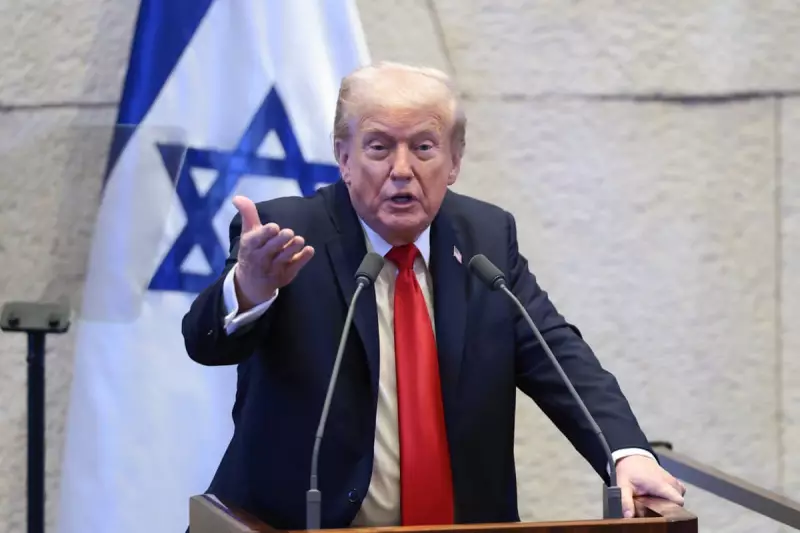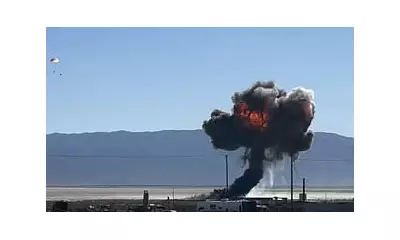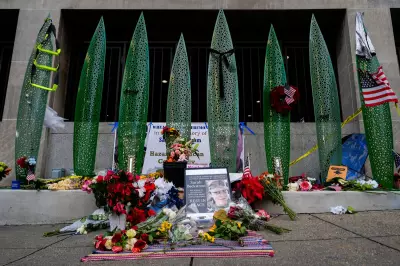
In a diplomatic manoeuvre that has sent shockwaves through international corridors of power, Donald Trump's administration has been conducting clandestine peace talks with Iran while maintaining steadfast support for Israel. This controversial dual-track approach represents one of the most significant - and dangerous - foreign policy initiatives of the modern era.
The Secret Channels Exposed
According to exclusive intelligence obtained by The Guardian, Trump's team has established multiple backchannel communication lines with Tehran, bypassing traditional diplomatic protocols. These covert discussions have reportedly focused on a comprehensive Middle East peace framework that would fundamentally reshape regional alliances.
The revelation comes at an exceptionally volatile moment, with tensions between Iran and Israel reaching fever pitch in recent months. The Trump administration's simultaneous courting of both nations has left allies and adversaries alike scrambling to understand Washington's true intentions.
Nuclear Deal in the Balance
At the heart of these secret negotiations lies the fate of Iran's nuclear programme. Sources indicate that Trump's team has proposed a radically different approach to the 2015 nuclear deal that he famously abandoned during his first term.
- Complete restructuring of uranium enrichment limits
- New inspection protocols for military sites
- Gradual sanctions relief tied to verifiable compliance
- Regional security guarantees for Israel
Israeli Reaction: From Suspicion to Outrage
Israeli officials have reacted with a mixture of disbelief and fury upon learning of the parallel diplomacy. Prime Minister Benjamin Netanyahu's government, which had considered Trump its strongest-ever American ally, now faces the prospect of being sidelined in negotiations that could determine Israel's security for generations.
"This represents a fundamental breach of trust," one senior Israeli defence official commented anonymously. "We were assured of complete transparency, yet we discover these talks through intelligence channels rather than diplomatic ones."
Regional Implications
The geopolitical ramifications extend far beyond the immediate Iran-Israel confrontation. Arab nations that had normalised relations with Israel under Trump-brokered deals now question whether Washington's commitments can be trusted.
- Saudi Arabia pauses further normalisation steps
- UAE reviews security cooperation agreements
- Egypt expresses "profound concern" about regional stability
- Qatar emerges as potential neutral mediator
International Condemnation and Support
European powers have responded with alarm, with French and German diplomats working frantically to assess the damage to their own Iran diplomacy efforts. Meanwhile, Russia and China have cautiously welcomed what they describe as "alternative approaches to Western-led negotiation frameworks."
The timing could hardly be more sensitive, with Iran accelerating its nuclear capabilities and Israel threatening pre-emptive military action. The Trump administration's gamble appears to be either a masterstroke of diplomatic innovation or a catastrophic miscalculation that could push the region toward open conflict.
What Comes Next?
As the world watches and waits, the success or failure of Trump's secret peace initiative may define not only Middle Eastern stability but also the future of American global leadership. With all parties walking a diplomatic tightrope, the slightest misstep could have consequences far beyond what any single administration could control.
The coming weeks will reveal whether this bold - some would say reckless - diplomatic strategy will yield historic peace or unleash unprecedented chaos in the world's most volatile region.





